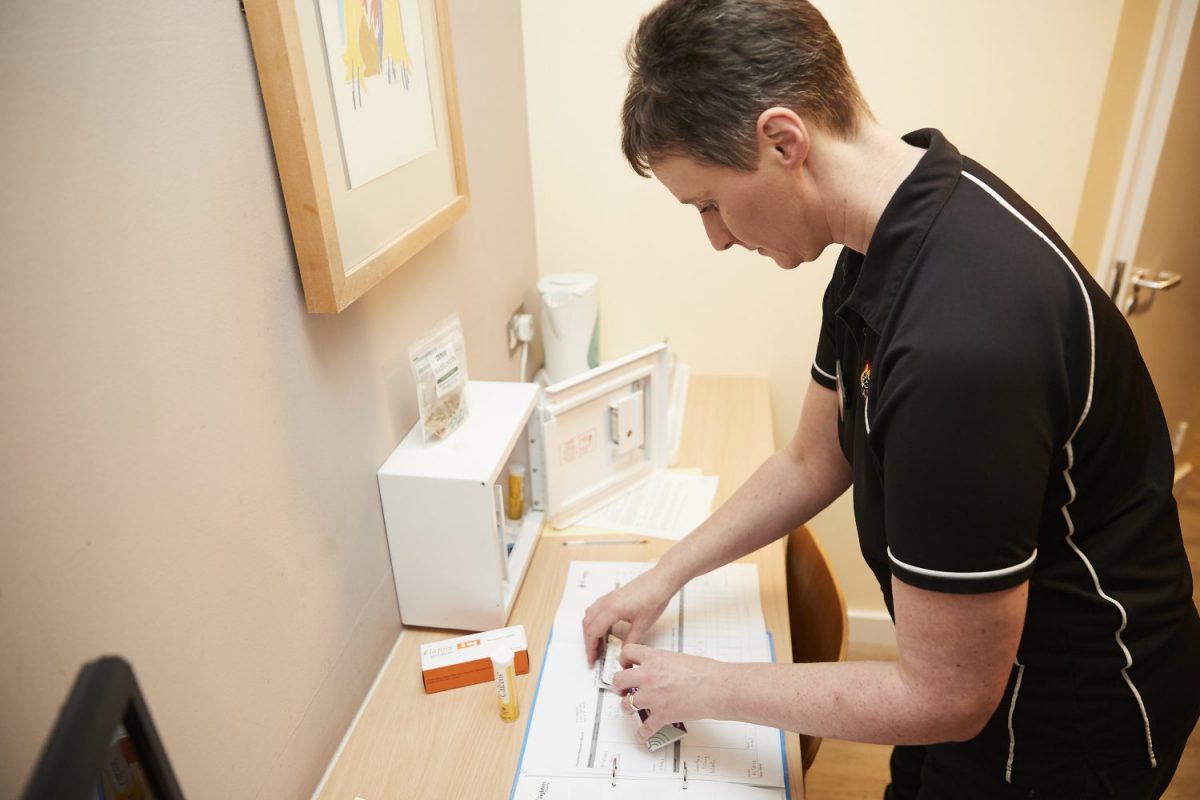Bowel cancer is the fourth most common form of cancer and the second biggest killer. But this shouldn’t be the case, as it is treatable and curable, especially if diagnosed at an early stage.
We are now raising awareness of the symptoms, with nearly half of UK adults not aware of them.
Nursing Services Lead Kath Savage is here to explain just what bowel cancer is, as well as make you aware of the key symptoms and why speaking to your GP early can help increase your chance of early diagnosis and ultimately, your chance of a cure.
What is bowel cancer?
Bowel cancer is sometimes called colon or rectal cancer. It is cancer that occurs in the large bowel (which is made up of your colon and rectum).
Most bowel cancers develop from pre-cancerous growths, called polyps, but not all polyps will develop into cancer. Most people won’t know they have polyps, as they don’t normally cause any symptoms.
Larger polyps can sometimes cause symptoms like bleeding from your bottom, blood in your poo, a production of mucus when you go to the toilet, diarrhoea or constipation and tummy pain. You should speak to your GP if you are worried about any symptoms.
Polyps are usually found during an examination of the inside of the bowel or as part of the bowel cancer screening programme. If your doctor finds any polyps, they can remove them to lower the risk of bowel cancer developing.
What are the symptoms of bowel cancer?
Symptoms include any one of several of the following:
- Bleeding from your bottom and/or blood in your poo
- A persistent and unexplained change in your bowel habits
- Unexplained weight loss
- Extreme tiredness and no obvious reason
- A pain or a lump in your tummy
Most people with these symptoms don’t have bowel cancer, other health problems can cause one or more of these symptoms, but please don’t be embarrassed and please still contact your GP if you are concerned.
What causes it?
We don’t know what causes bowel cancer, but we do know some factors increase your risk of getting the disease. We know you are more at risk if you have one or more of these risk factors:
- Aged over 50
- A strong family history
- A history of polyps (non-cancerous growths) in your bowel
- Longstanding bowel disease, such as Crohn’s or Ulcerative colitis
- Type 2 diabetes
- An unhealthy lifestyle
Having risk factors doesn’t mean that you will definitely get bowel cancer. Equally, if you don’t have any risk factors, it doesn’t mean you won’t get bowel cancer.
Can it be prevented?
There are some things you can’t change, like your age or your genetics. But scientists believe that around 54% of all bowel cancers can be prevented by having a healthier lifestyle. Some of these include:
- Avoid processed meat and limit red meat
- Eat plenty of fibre
- Be a healthy body weight
- Be physically active
- Limit your alcohol intake, and try having two alcohol free days a week
- Consider stopping smoking, speak to your GP about NHS stop smoking support.
Bowel cancer screening
Bowel cancer screening can save lives, as it aims to detect bowel cancer at an early stage, So some of you will have heard of screening, and may have already received your kit, but what exactly is screening?
If you’re aged between 60-74 (or 50-74 in Scotland) and registered with a GP, you will receive a bowel screening kit every two years in the post. If you are over 75 you can ask for the kit.
Screening detects small amounts of blood in your poo. The test is quick and easy and can be done in the privacy of your own home. You need one small sample of your poo to test.
If you’re worried
If you have any of the symptoms I mentioned above or have any concerns, don’t put off from contacting your GP by phone. They will be able to offer you a telephone consultation and discuss the next steps.
The NHS has guidance on their website, as does Bowel Cancer UK.
You can also call our Support Line on 0800 389 8820 and a member of the Nursing Team may be able to advise.

